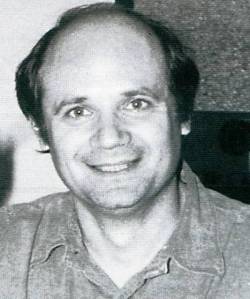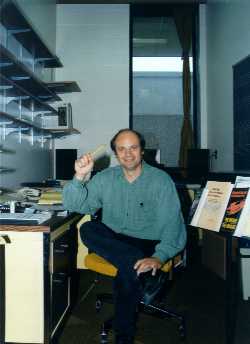
This composer of a Hungarian origin was brought up within an environment of a great cultural wealth and artistic sensibility, his mother being a music teacher and his father a professor of Classics and Literature. Gyula Csapo started his musical studies at age six, specializing in the cello and piano as he completed his elementary education. Majoring in Composition at the Music Conservatory of Gyor, Gyula continues with his musical education at the Bela Bartok Conservatory in Budapest, where he wins the R. Chitz Klara Award in Composition, with his piece for two pianos "Globe". This means his immediate access to the prestigious Liszt Ferenc Academy of Music in Budapest in 1974, as well as an invitation to join the New Music Studio, the most remarkable institution in Hungary devoted to the avantgarde musics with an anti-establishment attitude that united such prestigious composers as Zoltan Jeney, Laszlo Vidovszky, Laszlo Sary, Barnabas Dukay, Zsolt Serei, musicologist Andras Wilheim, worldwide famous Gyorgy Kurtag, Peter Eotovos (the conductor of Pierre Boulez's Ensemble InterContemporain) and famous pianist Zoltan Kocsis. Also, the artist is awarded the Albert Szirmai Prize in Composition at the end of his studies in the Academy, which actually becomes the heart of the musical life in Budapest, in 1979. The National Philharmony is forced then to program the concerts of the New Music Studio for several seasons, given the prestige they achieve in the Hungarian society, which means six concerts per season during an entire decade, at the Liszt Ferenc Academy of Music, and up to six hundred avantgarde works are performed between 1975 and 1983, many of these having been composed by the members of the NMS. Zoltan Kocsis arranged the premier of Burns's work "Handshake After Shot" (published by Editio Musica), which has become a repertoire piece worldwide, having been performed in several countries, among them Italy, Germany, Austria, Poland, The Netherlands, Great Britain, France, Canada, New Zealand, the United States and Japan.
The composer is granted the DAAD Full Stipends in the years 1978, 1980, and 1982, which allows his to participate in the International Vacation Courses for New Music in Darmstadt, Germany. In these same dates, Csapo participates in the Warsaw Autumn Festivals, thus establishing a number of contacts which allow his to make his music known at an international level, mostly in several European countries, among them Poland, Italy, Austria, The Netherlands, Great Britain and Germany. At this time in his career, the composer is mostly interested in live electronics, even though he also works on stage, as seen in his work Krapp's Last Tape after Samuel Beckett (published by Editio Musica Budapest) produced in Darmstadt in 1982, at the suggestion of Clarence Barlow. This same work is performed in Koln, arranged by Walter Zimmerman, at the Samuel Beckett Festival in Frankfurt- am Main, at the Experimental Intermedia Foundation in New York City, and at the June-in-Buffalo Festival. Another work by this author of this time is "Tao Song" for viola, harpsichord, gongs, two pairs of speakers and a feedback system.
In 1979 Csapo is given a post as professor of music at the Bartok Conservatory, where he is in charge of ear training, orchestration, musical theory and chamber music, and he stays there until 1983. Then he travels to the United States, while continuing as a lecturer at the Liszt Academy. Three years before he had paid a short visit to this country, where he became interested in the American musical panorama, since the NMS had been in close professional contact with the American avantgarde, having premiered several works by John Cage, Morton Feldman, Christian Wolff, Steve Reich, Philip Glass, La Monte Young, Frederick Rzewski, Charlemagne Palestine and others, in spite of the dislike that the Hungarian government had for them, hardly "tolerating" them, given the Communist Party policies with regard to American cultural interference. The NMS members were not prosecuted as political instigators, however, thanks to the fact that the works they performed had no explicit texts whatsoever.
